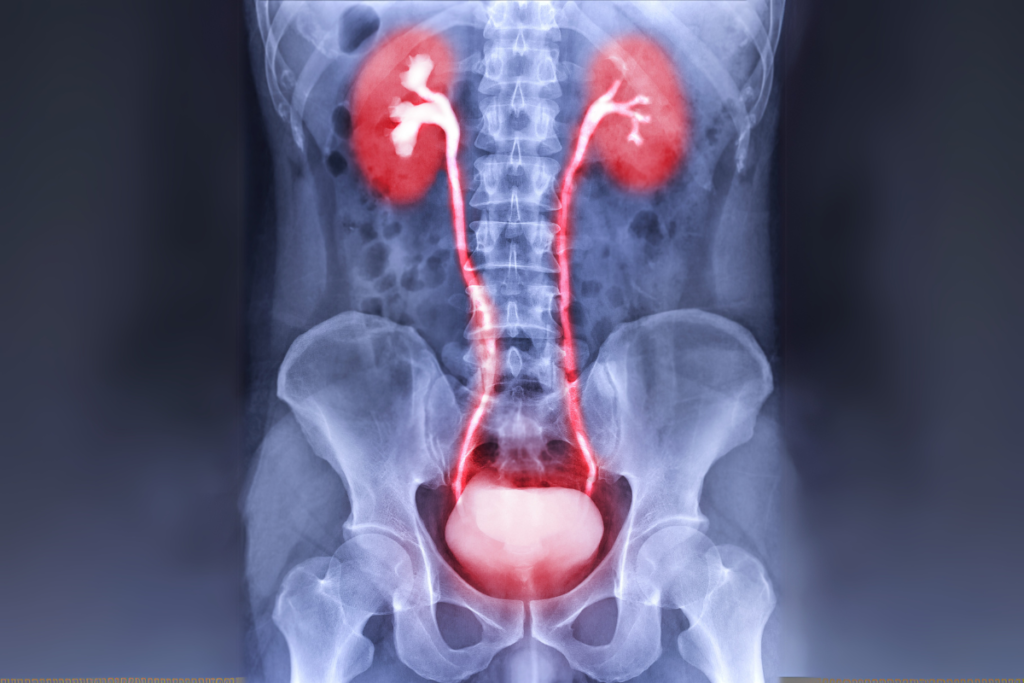A frequent infection that affects the kidneys, urethra, or bladder is called a urinary tract infection (UTI). Although they can also affect men, UTIs are more common in women. Among the symptoms include pelvic pain, frequent desires to urinate, and painful urination. Serious kidney infections may result from untreated UTIs. This article will outline the causes, signs, and available treatments for urinary tract infections (UTIs), along with prevention advice.
What is an Urinary Tract Infection (UTI)?
Bacteria that enter the urinary tract, usually from the urethra, and spread to the bladder or kidneys, are the cause of a UTI. While most UTIs affect the bladder (cystitis), they can also affect the kidneys (pyelonephritis) and ureters. UTIs can cause symptoms ranging from mild discomfort to severe kidney infections.
Causes and Risk Factors:
● Bacterial Infection: Through the urethra, Escherichia coli (E. coli) enters the urinary tract and is the most frequent cause of UTIs.
● Poor Hygiene: Wiping from back to front or improper hygiene after using the toilet can introduce bacteria into the urinary tract.
● Urinary Retention: The likelihood of germs growing in the bladder can be increased by holding in urine for an extended period of time.
● Sexual Activity: Due to bacteria introduced during intercourse, women who have sex are more susceptible to UTIs.
● Underlying Conditions: Pregnancy, diabetes, and kidney stones can all increase the frequency of UTIs.
Symptoms of a UTI:
Common symptoms include:
● Painful urination (dysuria).
● A strong urge to urinate and frequent urine.
● Cloudy or foul-smelling urine.
● Pelvic pain or lower abdominal discomfort.
● Back pain or fever (indicating kidney involvement).
Diagnosis and Treatment:
UTIs are typically diagnosed through:
● Urine tests identify the presence of bacteria, and white blood cells are commonly used to diagnose UTIs.
● A urine culture: The precise bacteria causing the infection is determined
Treatment options include:
● Antibiotics: Oral antibiotics are prescribed to clear the infection. It’s important to complete the full course of antibiotics even if symptoms improve.
● Pain relievers: Over-the-counter medications can alleviate pain and discomfort during urination.
● Hydration: Drinking plenty of fluids to flush bacteria from the urinary tract.
Prevention Tips:
● Drink lots of water and urinate often for the body to get rid of bacteria.
● Practice good hygiene, wiping from front to back.
● Avoid irritants like harsh soaps or sprays that can irritate the urinary tract.
● Urinate after sexual intercourse to lower the chance of bacterial infiltration.
FAQs
How do I know if I have a UTI?
Common indications of a urinary tract infection include lower abdominal pain, frequent urine, and painful urination.
Can UTIs cause permanent damage?
If left untreated, UTIs can lead to kidney infections and long-term damage to the kidneys.
Can men get UTIs?
Indeed, men can get UTIs, especially if they have underlying medical disorders like prostate issues, even though UTIs are more common in women.
Disclaimer:
This information is for educational purposes and should not replace professional medical advice. Always consult your healthcare provider for personalised recommendations.
How HealthPil Can Help:
HealthPil connects you with urologists and nephrologists who can diagnose and treat UTIs effectively. Schedule a consultation to prevent future infections and ensure proper treatment.

